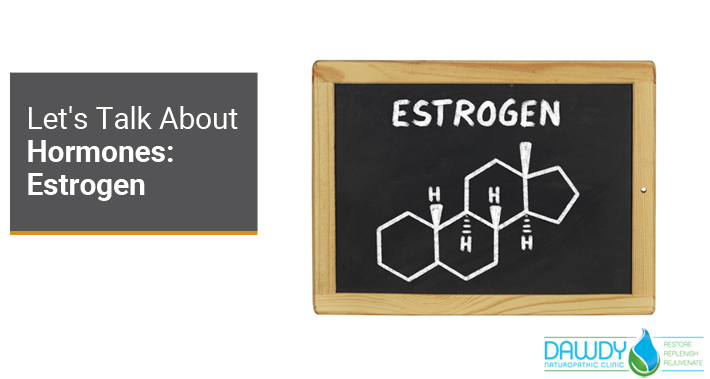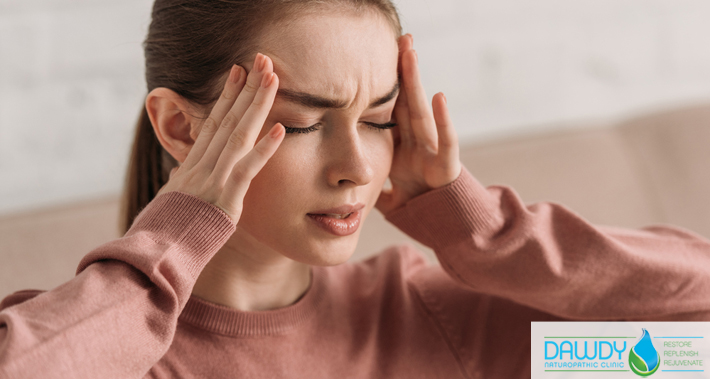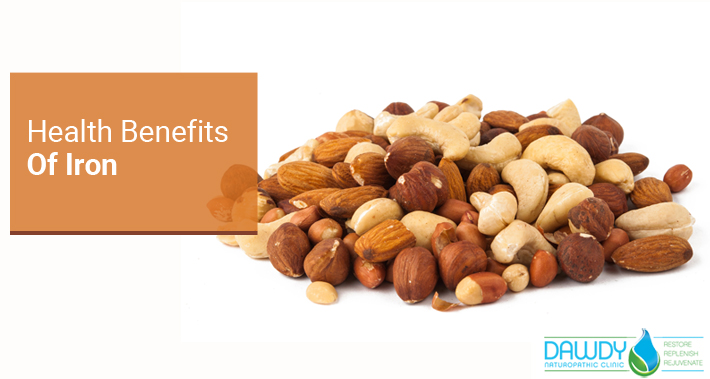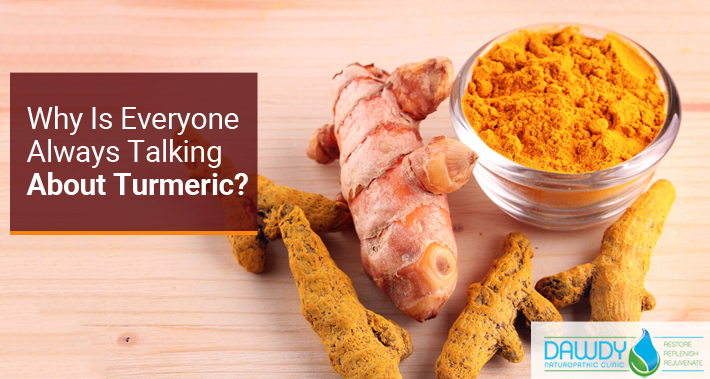Let’s Talk About Hormones: Estrogen
There are a lot of things people like to “blame” on hormones.
Cravings for certain foods, especially of the sweet or salty variety.
Growth spurts in preteens.
High sex drives (especially in teenagers).
Getting emotional and crying during sad movies (or even just sappy television commercials).
Hormones are chemical messengers which control a variety of bodily functions, including mood, metabolism, growth, and sexual health.
The two main hormones involved in sexual health are estrogen and testosterone.
I’m Dr. Kimberly Dawdy, a women’s health hormone imbalance naturopathic doctor in Ottawa.
Today, we’re going to have a closer look at estrogen and what can happen if your levels of this important hormone are out of balance.
Everyone Has Both
Generally testosterone is associated with masculinizing effects, and estrogen is associated with feminizing effects.
However, people of all genders have and need both hormones.
If you’re a man, you might not realize you actually need estrogen too!
We’re going to explore estrogen’s effects in both cisgender men and women, including what happens when it’s too high or too low.
What Is Estrogen?
Estrogen is generally referred to as the “female” hormone.
In women, it’s responsible for sexual development, the development of breasts and pubic hair, regulation of the menstrual cycle, and metabolism, among other things.
It works alongside progesterone to affect reproductive health.
In addition, estrogen plays a role in keeping your mind sharp, keeping your heart healthy, and bone health.
Estrogen is produced either in your ovaries or your testes – both are part of your endocrine system.
Your endocrine system is made up of all the glands and organs in your body that produce hormones.
It includes your thyroid, pancreas, adrenal glands, and others.
RELATED: What Is Your Endocrine System?
What Are The Three Types Of Estrogen?
There are three types of estrogen, each of which plays a different role in your body.
Let’s look at them now.
Estrone (E1)
Estrone, or E1, is a fragile form of the hormone estrogen.
If you menstruate, you’ll have some estrone in your body.
It will show up in your body in higher concentrations after menopause, however.
If required, your body can convert estrone to other forms of estrogen.
RELATED: Naturopathic Menopause Clinic Near Ottawa
Estradiol (E2)
Although estradiol is the most common form of estrogen found in cisgender women during their reproductive years, it is found in both men and women.
High levels of estradiol can lead to depression, acne, and a decreased sex drive.
On the other hand, too little estradiol may lead to heart disease, osteoporosis, and weight gain.
Estriol (E3)
During pregnancy, levels of estriol increase.
It causes your uterus to grow and helps get your body ready to deliver a baby.
Levels of this type of estrogen are highest just before it’s time to give birth.
RELATED: Naturopathic Doctor For Pregnancy Support In Ottawa
What Does Estrogen Do In Men?
Even though estrogen is a hormone mostly associated with women, it’s also made in men’s bodies.
The type of estrogen called estradiol is important for male sexuality.
It plays an role in balancing testosterone levels and managing libido, sperm production, and the ability to achieve and sustain an erection.
What Happens When A Man Is Low On Estrogen?
Low levels of estrogen in men aren’t generally a cause for concern.
In some cases, however, they are due to hypogonadism, which leads to lower overall hormone production.
This means experiencing low estrogen in men also often means that low testosterone is experienced at the same time.
What Happens When Estrogen Is Too High In Males?
People of all genders have both estrogen and testosterone.
But if you’re a man who has levels of estrogen which are too high, it can lead to issues which include:
- Erectile dysfunction
- Enlarged breasts (gynecomastia)
- Infertility
- Decreased hair growth
How Does Estrogen Affect A Woman’s Body?
Alongside progesterone, estrogen regulates the menstrual cycle and controls the reproductive system.
It’s also responsible for the development of secondary sex characteristics.
These are not directly involved in reproduction, but instead are outward signs of sexual maturity, such as the development of breasts, growth of pubic hair, and higher levels of body fat.
Estrogen also plays a role in brain, bone, and heart health.
What Happens When A Woman’s Estrogen Level Is Low?
If you’re a woman whose estrogen levels are too low, side effects could include:
- Tiredness
- Lack of vaginal lubrication which leads to pain during sex
- Brain fog
- Higher likelihood of urinary tract infections
- Irregular menstrual cycle
- Depression
- Mood swings
- Headaches
- Hot flashes
- Tender breasts
- Infertility
RELATED: Can A Naturopathic Doctor Help With Women’s Infertility?
What Does High Estrogen Do To A Woman?
Although estrogen is known as the “female hormone”, it’s possible to have too much, even if you’re a woman.
High levels of estrogen can lead to symptoms such as:
- Trouble with memory
- Bloating
- Difficulty sleeping
- Fibrocystic lumps in the breasts
- Hands and feet being cold
- Anxiety attacks
- Losing hair
- Gaining weight
- More PMS (premenstrual syndrome) symptoms
- Chronic fatigue
- Low sex drive
- Frequent headaches
- Breast tenderness
You may notice symptoms of low estrogen and high estrogen are often similar.
How Do You Fix Estrogen Imbalance Naturally?
If you suspect you have an estrogen imbalance, you’ll first want to determine if your levels of this hormone are too high or too low.
This is important because as you’ll recall, the symptoms of each are often very similar.
It’s also important to investigate if there are any underlying conditions which might be affecting your hormone levels.
Conditions that can trigger low estrogen include:
- Age
- Genetic conditions
- Chromosomal conditions
- Eating disorders
- Premature menopause
- Certain autoimmune disorders
- Pituitary gland issues
- And more
Naturopathic medicine can help provide treatment for hormone imbalances.
Book Your Appointment With Dr. Kimberly Dawdy, ND, Today
Do you think you may have an estrogen imbalance?
Mood swings, depression, and brain fog could be associated with high (or low) estrogen levels.
Maybe you’re worried about your sex drive because you’re not “in the mood” as much as you used to be – this might even be having an impact on your relationship.
If you think you might have hormonal imbalances, I’m Dr. Kimberly Dawdy, ND, and I’m a naturopathic doctor in Ottawa Ontario.
Book your consultation today and I’ll help you get to the bottom of your hormonal issues, and offer naturopathic solutions to help bring you back into balance.
Yours in Health,
Dr. Kimberly Dawdy, ND
Dawdy Naturopathic Clinic
6899 Sunset Blvd,
Greely, ON K4P 1C5
-https://g.page/dawdynaturopathicclinic
Dawdy Naturopathic Clinic offers a variety of naturopathic health solutions for individuals and families in Ottawa and the surrounding area.





